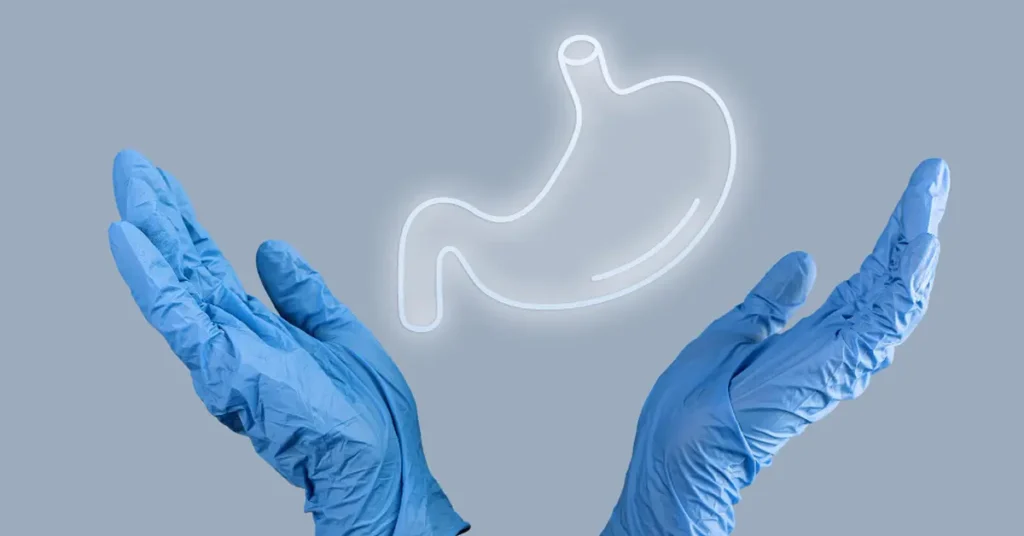Our bodies are complex machines, and the digestive system is the engine that keeps everything running smoothly. However, sometimes that engine can feel a little off. Whether you’re dealing with occasional bloating, discomfort, or more chronic issues, your diet plays a powerful role in maintaining a happy gut. At GI Solutions, understanding the link between what you eat and how you feel is the first step toward better digestion.
In this blog, we’ll explore some key foods that can help your digestive system thrive and some to be mindful of.
The Gut’s Best Friends: Foods That Help
Think of these as the VIPs of your digestive wellness. They’re packed with nutrients that support a healthy gut microbiome, aid in digestion, and reduce inflammation.
Fiber-Rich foods
Fiber, soluble and insoluble, is the foundation for digestive wellness. Soluble fiber dissolves in water, forming a gel that slows digestion and stabilizes stools (useful in diarrhea). Insoluble fiber adds bulk and accelerates movement, promoting regularity and preventing constipation.
Key Sources and Actions:
- Soluble: Oats, beans, lentils, apples, carrots; slow digestion, regulate blood sugar, and improve stool quality.
- Insoluble: Whole wheat, brown rice, nuts, leafy greens boost stool volume, speed GI transit, and feed beneficial bacteria.
- Beets and Fennel: Both are rich in fiber and plant compounds that feed gut microbes and relieve symptoms like bloating and cramping.
Probiotic Powerhouses
Probiotics are live beneficial bacteria that balance the gut microbiome, especially after illness, antibiotics, or chronic GI stress. They enhance immune function, reduce inflammation, and boost nutrient absorption.
Sources:
- Yogurt, kefir: Look for “live and active cultures.” Kefir’s specific “grains” improve lactose digestion and reduce GI inflammation.
- Fermented vegetables: Sauerkraut, kimchi, and miso add both probiotics and prebiotics.
- Kombucha: This fermented tea delivers a spectrum of live microbes, aids digestion, and can help heal stomach ulcers.
Lean Proteins
Protein repairs GI tissues, especially after inflammation or injury. Lean sources (skinless chicken, turkey, fish, tofu, lentils) are easier to digest and less likely to irritate the gut compared to fatty red meats.
Gut-Friendly Fats
Healthy fats (avocado, olive oil, nuts, chia, and flax seeds) contain anti-inflammatory compounds, support fat-soluble vitamin absorption, and may improve gut lining health.
Hydrating Foods
Proper hydration is crucial. Water, cucumbers, watermelon, and celery help dissolve nutrients for absorption and make waste transit easier.
Specialized Digestive Helpers
- Papaya: Contains papain, an enzyme that helps break down proteins and relieves IBS symptoms like constipation and bloating.
- Ginger: Speeds gastric emptying, lessening nausea and indigestion.
- Miso: Fermented soybean paste loaded with probiotics for gut well-being.
The Gut’s Arch-Nemesis: Foods to Avoid (or Limit)
While sensitivity varies person-to-person, some foods are scientifically linked to GI disruptions:
Processed and Fried Foods
These foods are high in saturated/trans fats, sugar, and artificial additives, making them hard to digest and likely to promote bloating and inflammation. Fast food, packaged snacks, and fried items regularly top the “avoid” list by gastroenterologists.
High-FODMAP Foods
FODMAPs, fermentable carbs, are poorly absorbed by many people, leading to gas, bloating, and pain, especially in those with IBS. FODMAPs include oligosaccharides (onion, garlic, wheat), disaccharides (lactose), monosaccharides (fructose in apples, pears), and polyols (certain artificial sweeteners and stone fruits).
- In most people, FODMAPs act like fiber, feeding good bacteria, but in sensitive individuals, they ferment rapidly, producing excessive gas and water.
- Up to 80% with IBS benefit from a low-FODMAP diet, yet many healthy people digest these carbs with no issue.
Excess Sugar and Artificial Sweeteners
Sugar can promote unhealthy bacteria growth, while artificial sweeteners (aspartame, sucralose) can cause bloating, diarrhea, and disrupt gut flora balance.
Dairy (for Lactose Intolerant)
Dairy triggers bloating, cramps, and diarrhea for lactose-intolerant individuals. Lactose-free alternatives can often be tolerated.
Carbonated and Caffeinated Beverages
Carbonated drinks trap gas in the GI tract, causing bloating. Coffee and caffeine can upset the stomach lining, spark acid reflux, and alter bowel habits.
Spicy and Acidic Foods
Spicy ingredients (chili peppers) and acidic foods (citrus, tomato products) can irritate the GI lining and worsen symptoms like reflux, gastritis, and indigestion.
Chocolate, Corn, Refined Carbohydrates
Chocolate may trigger heartburn; corn’s cellulose content can cause gas and cramps; refined carbs (white bread, pastries) lack fiber, often raising constipation risk.
Scientific Insights on Digestive Wellness
- Gut microbes thrive on the regular intake of prebiotics, such as those found in foods like beans, bananas, and onions.
- Eating regularly and giving your gut an overnight rest helps balance microbiome cycles and supports gut motility.
- Individual tolerance varies; personalized nutrition from GI experts offers optimal results, especially for persistent or severe symptoms.
Conclusion
This list is a general guide, but everyone’s digestive system is unique. What works for one person might not work for another. A science-backed digestive wellness plan includes fiber-rich foods, probiotics, lean proteins, hydrating ingredients, and healthy fats, with careful limitation of processed, sugary, FODMAP-rich, and irritating foods. If you’re experiencing persistent digestive issues, it’s crucial to seek professional help.
At GI Solutions, our team of experts can help you identify the root cause of your symptoms and create a personalized plan to get you feeling your best.
Remember, a healthy gut is a happy gut, and it all starts with what’s on your plate.
Our expert team will guide you in building a healthy eating strategy that supports your gut, boosts energy, and enhances long-term health.

Related blog
Fiber for Better Digestion and Long-Term Wellness
Gut Health 101: Hidden Secrets for Energy, Immunity & Mental Clarity

